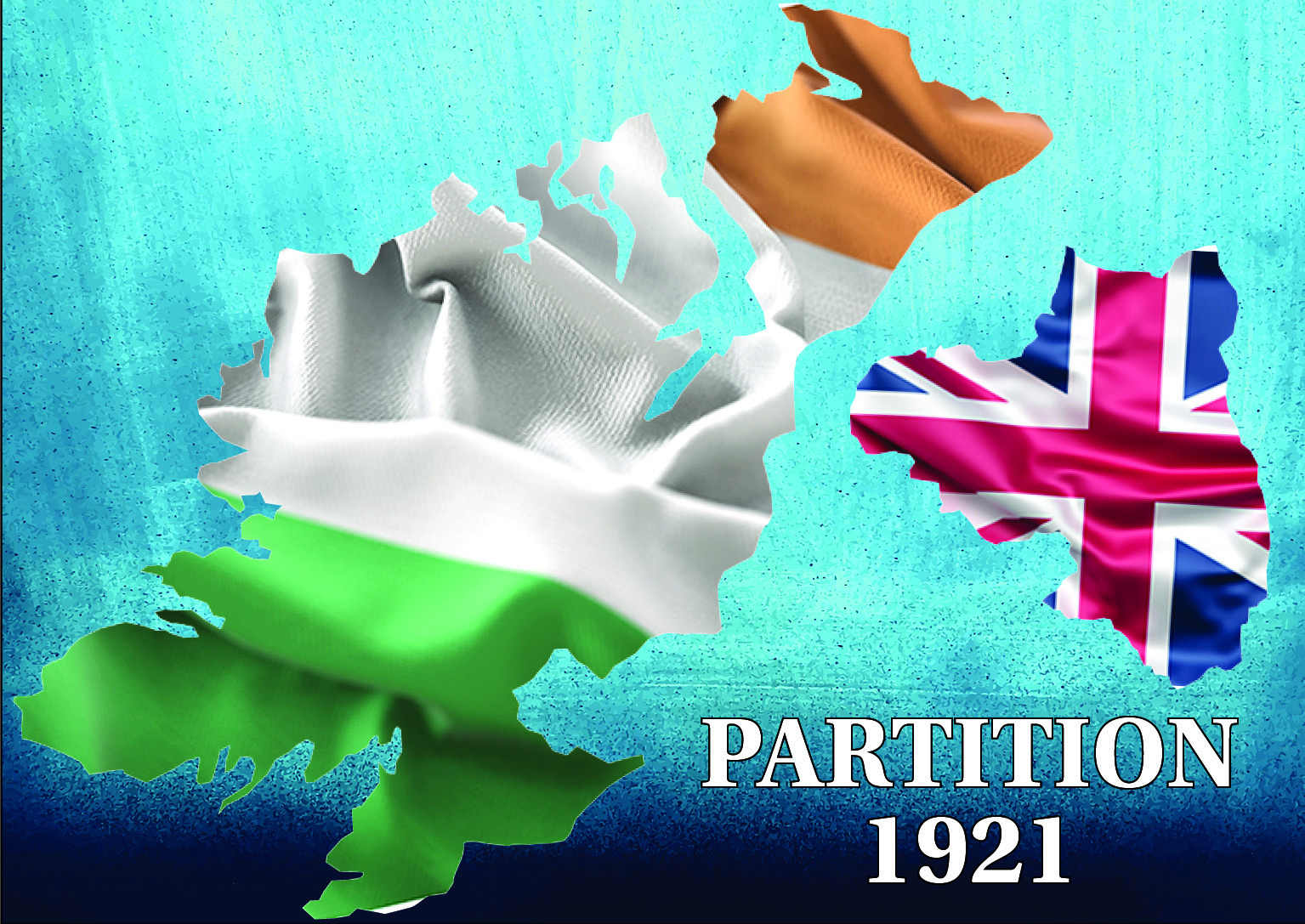
The Boundary Commission's final recommendations for the Irish border. The report was suppressed with the original lines of partition, as we know today, remaining in place.
In the second and final part of our series on the 100th anniversary of the signing of The Anglo-Irish Treaty, Matthew Leslie speaks to Dr Adrian Grant of Ulster University to look at how life changed for people in Derry and how nationalist hopes of the city joining the Irish Free State were raised and then dashed.
While Michael Collins' plan to destabilise the new Northern Ireland state to the point of collapse and have Derry and the North unified with the Irish Free State never got off the ground, the hopes of the nationalist community in the city lay with the Boundary Commission.
Although the Government of Ireland Act in 1920 created Northern Ireland with a border already drawn up, it was a paper one at that.
Any border to be set in stone would come from the hand of the Boundary Commission who ultimately had the power over which side of the frontier that Derry would finally be placed.
However, the city's unionist community were equally as determined as the nationalists to make their voice heard – especially the powerful business sector which was mostly unionist in terms of their political way of thinking.
One strong opinion from the financial side of Derry was the shirt and collar making industries who feared their trade routes to England would be impeded by imposed tariffs were the city to be placed under Irish Free State jurisdiction.
An alternative plan of splitting Derry into two cities with the side west of the River Foyle going to the Irish Free State with the eastern half remaining in the United Kingdom was objected to by the business community who wanted the port and harbour on their side to have free and easy access to the river.
Despite what arguments the nationalists came up with, it would be the unionist-minded business sector that won the day.
Dr Adrian Grant of Ulster University said: “The business community in Derry was a big player alright. You had the shirtmakers and other business interests playing a huge role in making submissions to the Boundary Commission.
“They were making various points about whether Derry should be in the North or the South. Both sides had significant arguments – many of them valid in terms of economics.
“You had nationalists arguing that cutting off the natural hinterland of the city didn't make any sense as Derry was the natural county town of Co. Derry, Co. Donegal and Co. Tyrone.
“To cut Derry away from its hinterland was seen as being akin to economic suicide.

“Whereas unionists, many of whom were business owners, were making the point that Derry would stand outside the British trade area which would mean that exports would become a more difficult thing to do.
“Given the shirt industry's export-orientated business model, they were concerned of being subjected to tariffs if Derry was part of the Free State which could destroy their industry.
“There was a lot going on and a lot of points from both sides being made – although they were all moot in the end as the Boundary Commission was shelved.”
Nationalists had hoped that the demographics would work in their favour given they were in the majority in Derry.
However, bizarrely, the Boundary Commission deemed the city's 54.9 per cent demographic to not be enough of a total to place Derry into the Irish Free State.
Indeed, it could be argued that both Derry's strong symbolism of defiance to the city's unionists as well as the port and harbour which London were keen to retain was too strong a factor for the Commission to listen to the nationalist viewpoint.
Dr Grant adds: “That goes back to the idea that Derry was symbolically a unionist city with the siege of 1689 and 'no surrender' and the city never having been breached. All of that symbolism was really important to unionists.
“Not to forget the port and harbour at Derry. The Treaty made provisions for the British to access a number of strategic ports in the Free State.
“Keeping this one at Derry especially was seen as an extra bonus. That might have been a calculation into keeping the city inside the North.
“The idea of having two cities as well in a new political jurisdiction must have played a role too.
“But it was felt that Northern Ireland didn't have a critical mass of area or population that wouldn't be big enough to survive.
“So there was a calculated risk for Northern Ireland to take in Derry, Tyrone and Fermanagh – with all three having significant nationalist majorities in their areas and didn't want to be placed inside Northern Ireland.
“But at the same time, it gave an image of an area that was significant and could survive for the long-term.
“So that's why Derry was wanted so badly in the new Northern Ireland. The symbolism and the fact that it gave more reach out of Belfast.”
Read more:
Derry "the centre of attention" in the Partition question
When unionists lost control of Derry
Ground shifts away from Derry's nationalists as Partition lines are drawn up
Collins' plan to destabilise north and bring Derry to Irish Free State fold died with his death
Economic consequences of partition bite as Derry is isolated from Irish Free State
Subscribe or register today to discover more from DonegalLive.ie
Buy the e-paper of the Donegal Democrat, Donegal People's Press, Donegal Post and Inish Times here for instant access to Donegal's premier news titles.
Keep up with the latest news from Donegal with our daily newsletter featuring the most important stories of the day delivered to your inbox every evening at 5pm.